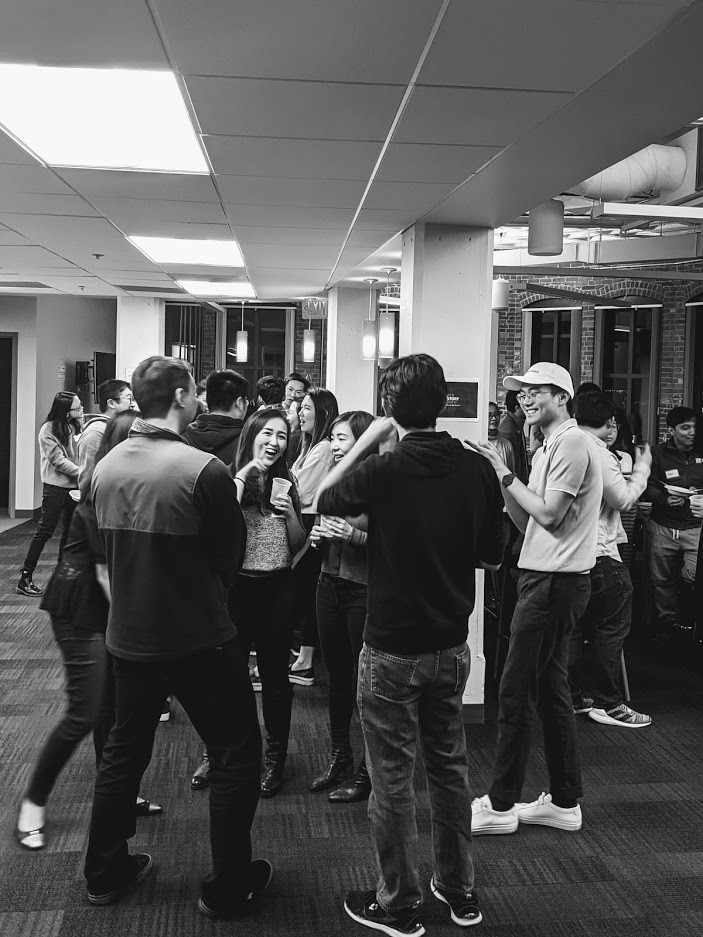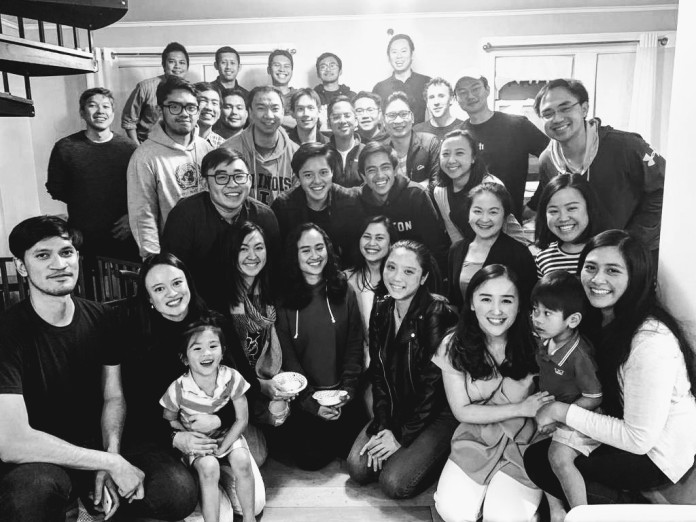This article is jointly written by Dylan Sumiskum and Brandon Goldstein but due to technical limitations, the article can only be posted by using either author’s profile.
Dylan is a software engineer specializing in a range of applications from distributed software architecture, industrial internet of things, to offline first app development. Outside of his main work, he is passionate about complexity economics and applying it to improve organizational processes and productive networks. Brandon is a design engineer at GE Aviation, working to develop jet engine technology for commercial and military aircraft. He is interested in the many aspects of engine systems, and the impact that they can have on the product supply chain. Both contributors are member of Indonesian Professional Association in Boston (IPA-BOS). In this article, they share about IPA BOS, why building networks through an organization like this is important, and why Indonesians studying or working abroad should join one.
Imagine being a foreigner in a new city. You’ve just graduated from university and started a new job. Now what? With over 270 million people, Indonesia ranks just below the United States in the world population. However, in major American cities such as Boston, Indonesian professionals find themselves an outnumbered few. We saw this as an opportunity to build a tight-knit community.
Humble Beginnings
IPA-BOS started out modestly — as a group of friends hanging out after work. What we had found in each other was a warm community of individuals who shared the same core experiences. Graduating university and entering into the workforce drastically shifted our social priorities. We were all working full-time, and wanted to connect with other Indonesians.

As our priorities shifted, so did the organization of our group. Eventually, our Korean BBQ nights turned into networking events, and our summer bar crawls turned into professional social mixers. This transformation was spurred by our eagerness to expand. We found that, within our Indo-abroad community, we were able to build trust quickly on the basis of common ground. We took this intense level of trust-building, and applied it to grow our networks professionally.

Building Trust, Staying Focused
We quickly found that the key to growing trust in our professional organization was to establish an open-minded culture. Many Indonesian communities abroad naturally fragment themselves into smaller cliques. As an expatriate, remaining in your social comfort zone would deny yourself access to the outward-facing perspectives that new people deliver. Bringing in new people, connecting with them on a cultural level, and building from their strengths, are critical aspects of career growth.

People enter into social comfort zones to feel safe among individuals who share their beliefs. These tighter circles allow their constituents to connect and learn from each other on an intimate level. That is precisely what we want our members to achieve. By combining an open-minded culture with the shared trust of a smaller circle, we seek to expand the boundaries of our IPA-BOS ‘safe space’ and create an outward-facing organization.
However, our greatest challenge was clear early on: focus. We needed organizational focus to grow and scale our community, without losing sight of our core principles.
For example, we only admit members who show a sense of professional maturity. More specifically, allowing too many students into IPA-BOS would drive away our professional pool, transforming our network into another student organization. Another example — as we grew, we garnered the attention of larger Indonesian organizations, and had to decline requests to share our subscriber lists and network data. To accommodate such inquiries would break the trust we have of our members and undermine shared objectives.
In each of these cases, what allowed us to be successful as a leadership team was acting with intention. Anything we did, big or small, had to align to our organizational goals. These goals ensure that our members continue deriving value from the circle that we are building. There are three core objectives that we have collectively decided to focus on.
- Build a strong US referral network for members, by members
- Contribute beyond the professional community to enrich the work experiences of Indonesian students in Boston
- Utilize the unique position of the Boston economy to incubate entrepreneurs and leaders among members in STEM, to grow long-term impact as an organization
Giving Back, Teaching, Learning
At our start, IPA-BOS played an informal ‘older sibling’ role among Boston students. As we matured as an organization, we looked to secure a lasting contribution to the greater community. We found ourselves in a unique position of strength — with access to professionals from a wide range of fields. We’ve utilized this position through the inclusion and direct mentorship of undergraduates in partnership with our student network counterpart, PERMIAS MA.
Implementing mentoring initiatives as part of our charter has, so far, had a net positive impact on our network. We learned that mentoring is an exchange rather than a one-way channel. As with networking, being mentors also provide opportunities for our members to gain new perspectives and fresh ideas. The students who we advise are often much younger than us. As mentors, we’ve been able to gain new perspectives, fresh ideas, and a pulse of the younger generation. These are important learnings that can also be applied to hiring new talent and developing a product or business idea.
Looking to the future
IPA-BOS has grown to over 100 members since our inception in 2019. In building this community, we have learned so much. We are sharing our story with the hope of encouraging other Indonesians to create their own networks in their own regions.
The COVID-19 pandemic has created a tough few months for IPA-BOS. We face the challenge of slow growth and attrition among Indonesian professionals in the United States. However, we still look forward to maintaining the core principles that have strengthened and built our community in the past.
We welcome new members, and keep old ones — even if they choose to ‘pulang kampung’. We hope to continue adapting to the needs of our members in order to always drive value for them professionally and personally. We aim to build Boston into a hub for science, technology, and academic leadership among the overseas Indonesian community.
IPA-BOS is part of the Indonesian Professionals Association affiliate network. This network consists of chapters led by Toshiki Jahja (San Francisco), Arcky Meraxa (New York), and Harry Sugama (Washington DC). The Boston chapter was originally initiated by Natasha Valencia, Kemal Hadibrata, and Dylan Sumiskum. More chapters are being established in Chicago and Hong Kong.









